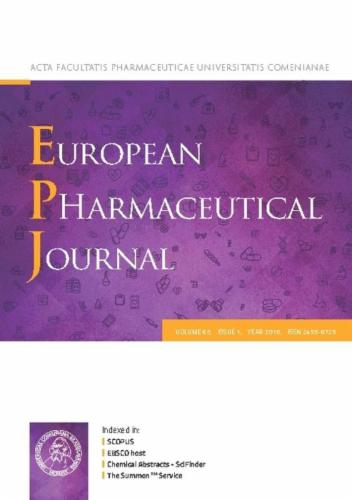Impact of surface energy and surface tension on vial fogging within lyophilized drug products
IF 4.3
3区 医学
Q1 PHARMACOLOGY & PHARMACY
引用次数: 0
Abstract
Vial fogging is a typical cosmetic cake appearance issue in lyophilized products, mostly occurring in amphiphilic protein-like freeze-dried formulations, especially antibody drug conjugate (ADC) formulations. Although fogging is currently believed to have no directly impact on product quality, its occurrence can raise concerns about container closure integrity, leading to an increased product rejection rate in pharmaceutical production. Vial fogging is typically believed to be related to the driving force from the interfacial energy at the liquid/solid interface, which is impacted by several factors. This study delves into fogging impacting factors including vial types, depyrogenation process, and formulation with the aim of appearance enhancement. Employing a Surface Tensiometer and a Drop Shape Analyzer to ascertain surface tension, surface energy, and contact angle measurements, this study incorporated results from lyophilization processes as well and discerned that the degree of fogging is directly proportional to the increase in surface energy and inversely related to surface tension. Consequently, this research identified the critical parameters for forecasting the fogging level prior to lyophilization, offering innovative strategies for enhancing the visual quality of lyophilized pharmaceuticals in subsequent developments.

表面能和表面张力对冻干药品小瓶雾化的影响。
小瓶雾化是冻干产品中典型的化妆品蛋糕外观问题,主要发生在两亲性蛋白样冻干制剂中,特别是抗体药物偶联物(ADC)制剂。虽然雾化目前被认为对产品质量没有直接影响,但它的发生会引起对容器密封完整性的关注,导致药品生产中产品废品率的增加。小瓶雾化通常被认为与来自液/固界面能的驱动力有关,这受到几个因素的影响。本研究深入探讨雾化的影响因素,包括瓶型,去热原过程和配方,目的是提高外观。本研究采用表面张力仪和液滴形状分析仪来确定表面张力、表面能和接触角的测量结果,并结合了冻干过程的结果,发现起雾的程度与表面能的增加成正比,与表面张力成反比。因此,本研究确定了预测冻干前雾化水平的关键参数,为后续开发中提高冻干药品的视觉质量提供了创新策略。
本文章由计算机程序翻译,如有差异,请以英文原文为准。
求助全文
约1分钟内获得全文
求助全文
来源期刊
CiteScore
9.60
自引率
2.20%
发文量
248
审稿时长
50 days
期刊介绍:
The journal publishes research articles, review articles and scientific commentaries on all aspects of the pharmaceutical sciences with emphasis on conceptual novelty and scientific quality. The Editors welcome articles in this multidisciplinary field, with a focus on topics relevant for drug discovery and development.
More specifically, the Journal publishes reports on medicinal chemistry, pharmacology, drug absorption and metabolism, pharmacokinetics and pharmacodynamics, pharmaceutical and biomedical analysis, drug delivery (including gene delivery), drug targeting, pharmaceutical technology, pharmaceutical biotechnology and clinical drug evaluation. The journal will typically not give priority to manuscripts focusing primarily on organic synthesis, natural products, adaptation of analytical approaches, or discussions pertaining to drug policy making.
Scientific commentaries and review articles are generally by invitation only or by consent of the Editors. Proceedings of scientific meetings may be published as special issues or supplements to the Journal.

 求助内容:
求助内容: 应助结果提醒方式:
应助结果提醒方式:


